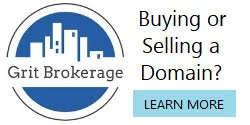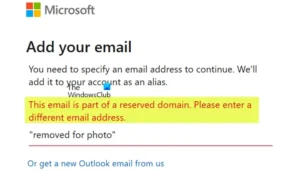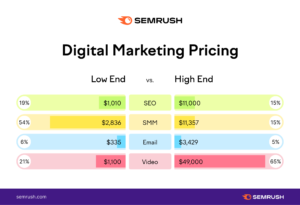Having the right domain name can make or break a company’s success. In today’s digital age, people want it to be easy to learn more about new brands before becoming loyal customers, and the first place they go is to a company’s website. That is where an accurate domain appraisal can come in handy.
The problem is that domain names range incredibly in price, from a base cost of around $10 to tens of millions of dollars.
Domain name buyers and sellers need to know what they are getting into. Unless they happen to be experts in the field of digital assets, most have no idea how to determine the value of a domain name and making an uninformed decision can lead to significant monetary losses.
Doing some due diligence in the form of requesting a domain name appraisal before moving forward with a sale or acquisition is the best solution to this problem.
What Is a Domain Name Appraisal?
A domain name appraisal is an estimate of how much a particular domain name is worth. This explanation may sound simple, but coming up with an accurate valuation can be quite difficult. It requires taking a large number of different factors into account, including the value of comparable domain name sales, current trends, target demographics, and much more.
How Does the Process Work?
While some parts of the appraisal process are based on clear, hard data, others require a far more nuanced understanding of domain names and their subjective value. Some people request professional appraisals, while others make use of online tools to attempt self-appraisals.
Keep in mind, however, that it will be more challenging to justify an amateur sale valuation to potential buyers. Be sure to collect plenty of data and convert it into a digestible form so that it can be used to justify the price if it comes up.
Factors that Influence Domain Appraisal Valuations
While much of domain name appraisal comes down to subjective analyses, there are some factors that every professional appraiser will take into account when valuing a domain name. Those factors include:
Domain Name History & Age
Possibly the most important factor influencing the value of a used domain is its history. If it already has a massive number of backlinks from its previous owner, that will make a big difference when it comes to search engine optimization.
Domains that have already attracted plenty of high-profile backlinks are almost always worth more than those that have no positive history or, much worse, a history of Google penalties for black hat SEO practices.
Brandability
A high level of brandability can also increase a domain name’s value. In this case, that doesn’t necessarily mean the domain name is a perfect match to a company or individual’s brand name, but that it reflects it in some way.
Domain names that include keywords that will be useful to bloggers are good examples, as is the presence of regional or industry-related keywords that could offer niche market appeal. These kinds of domain names won’t necessarily be worth a fortune but they are usually valued at least a little higher than average.
Top-Level Domain & Domain Extensions
Top-level domains (TLDs) are the endings that come at the end of URLs. The most popular of them are.com, .org, and .net, but there are hundreds of options.
While less-common TLDs sometimes start trending and increase in value, .com will always be the most recognizable option, so domain names that feature this popular TLD will always be worth more.
Domain Length
As a general rule, shorter domain names are worth more than longer ones. Of course, this isn’t always the case. It only applies if the shorter domain name is more memorable and easier to share, both of which can make it more marketable.
Easy to Spell
Misspelled domain names are almost always worth significantly less than their properly-spelled alternatives, and that generally includes intentional misspellings intended to look trendy or cute.
It’s worth considering domain names aimed at specific places with alternative spellings, but remember that most of the world uses American English. British spellings are fine for geographically targeted websites, but they won’t be worth as much, in general.
How to Improve Domain Name Value
Most of the factors that influence domain name value are inherent traits such as the length of the name and its TLD. That said, there are some things site owners can do to improve their domain names’ value before placing them up for sale, and all of them focus on one thing: improving the site’s popularity.
If the site is popular, it will have more high-authority backlinks, which can increase its value.
The strategies used to improve domain name value are the same ones used to increase a website’s popularity. Start by improving SEO practices, add plenty of high-value content, and make sure the marketing is on point.
Automated Domain Appraisal Tools
Just about anyone who wants an accurate valuation of a domain name will eventually turn to appraisal services. As with domain names themselves, though, these services aren’t all equally worth the time and money. Some are better than others for specific uses, and some are just overall better to use. The most popular options include:
Estibot
Estibot offers not just a valuation for each domain name but also the reasons why it may differ from what searchers expected. Estibot only really considers four factors:
- TLD
- Length
- Interest level
- Search frequency
Of course, DIY appraisers will have to take the resulting estimate with a grain of salt. These four metrics don’t cover all of the bases, but they do offer a good jumping-off point.
GoDaddy
GoDaddy is primarily known as a hosting site and domain retailer. However, its valuation tool is also immensely popular. Although GoDaddy’s valuation tool takes some basic metrics into account, it focuses primarily on comparing the sale prices of similar domains.
Unfortunately, while GoDaddy’s appraisal tool is popular, it’s also notorious for overestimating domain name values.
Sedo
Like GoDaddy, Sedo functions as a domain name marketplace, but also offers added services. The paid appraisal service costs $99 but provides a personalized, staff-reviewed report whereas most appraisal tools only collect and display existing data.
Those who want to be able to point to a custom report that includes more subjective factors like SEO suitability, potential advertising effectiveness, and others, when interacting with buyers or sellers may find that it’s worth the money.
Flippa
Flippa stands out for a different reason. Its valuation tool allows users to specify how they plan to monetize their sites. Users can choose:
- Content and/or on-site advertising
- eCommerce sales
- Software as a Service provision
- Affiliate marketing
- Apps
The tool will then offer a valuation based on the domain name’s intended use. Flippa also offers a second way to gain insight into domain value. It offers community valuations in which members create and share estimates based on their own experiences with buying and selling similar domain names.
Epik
Epik offers both a free appraisal tool and a paid service. While the paid service is pretty pricey at $399, which can drive away budget-conscious users, its free tool is quite popular. It offers not just an estimated dollar amount but also a rundown of related statistics.
Those statistics include not just common ones such as monthly Google searches for the specific domain name but also the language used on the website, the average CPC, and more.
Free Valuator
Free Valuator creates estimates based on standard factors like keywords, statistics, and rankings. However, it also offers novel features like crowd appraisals, which allow users to essentially crowdsource opinions about what a reasonable estimate might be for a given domain name. Professional appraisals are also available for $69 each.
Domain Index
Domain index provides users with relevant stats that can be helpful when either selling or buying a domain name. Those stats include not just simple things like the TLD rating and age of the site but also less common factors like monthly type-ins and whois records.
Plus, new users can perform several searches before they’re even asked to register for the service. Users who want access to more advanced features can also pay for expert consultations.
Website Outlook
As a free valuation tool, Website Outlook performs pretty well. It allows users to call up over 20 metrics to determine a domain name’s real value. Although the tool’s value calculator is geared primarily towards SEO needs, the stats it tracks also offer insight into other things like how to monetize a site after purchase or how to communicate its worth to potential buyers. Website Outlook is usually put to best use when combined with another tool or appraisal service.
Siteprice
Siteprice is a no-frills tool that draws information from multiple other sites. Users should note, however, that its emphasis is on ad revenue rather than other monetization methods, which means the valuations are generally based on the underlying assumption that the website owner uses Google Adsense.
StatChest
StatChest offers a longer list of statistics than most other appraisal tools. It keeps track of not just Google searches and/or type-ins but also other stats that indicate broader Internet interactions such as Facebook shares and comment counts, related Tweets, and Pinterest pins.
If the website currently associated with the domain name uses bad practices like overly-large image inclusion or render-blocking resources, StatChest will also make recommendations regarding how to fix them.
Domain Appraisal FAQ
Still wondering how to get started performing a DIY valuation or finding the right appraisal tools and services? It can help to learn from other people’s questions and concerns, so read through the answers to the FAQ below.
Is Professional Domain Appraisal Worth the Money?
Whether professional domain appraisal is worth the money will depend on the specific circumstances surrounding the valuation. If it’s for a high-value domain name owned by the person seeking the appraisal, it’s worth hiring a professional, but it isn’t necessarily for those who are just curious about domain names owned by other people.
Keep in mind also that professional appraisals are different from the personalized valuations offered by many of the most popular online domain appraisal tools.
What’s the Most Important Factor Impacting Domain Appraisal Value?
The most important factor influencing domain name value isn’t its history, brandability, or niche, although those are all key factors taken into account by professional appraisers. It’s how much the market is willing to pay for it. Even if the domain name valuation is high, it won’t mean anything if the seller can’t find qualified buyers.
How Can Owners Sell Domain Names Once They’ve Had Them Appraised?
Owners can sell domain names by turning to common marketplaces like Flippa or GoDaddy, but that’s not the best solution for premium domains. For premium domain names, turning to a domain broker is usually a better bet. In some cases, domain names with public whois records will attract buyers at random, as well, but that’s unusual.
Can Domain Name Value Change Over Time?
A domain name’s value almost always changes over time because some of the most important factors influencing how much it’s worth are very fluid.
If, for example, someone purchases a domain name that was valuable primarily because of its positive history, then does nothing with the site, or uses black hat SEO tactics that get it penalized by Google, the value will go down.
If, on the other hand, someone purchases an obscure domain name for next to nothing only to find that it relates to trending topics a few months later, its value will go up.







